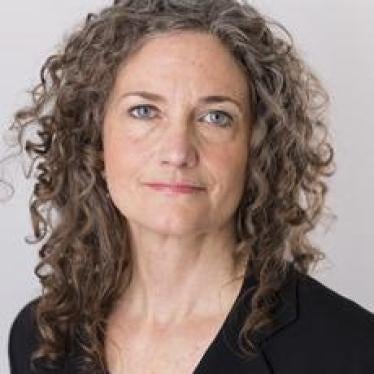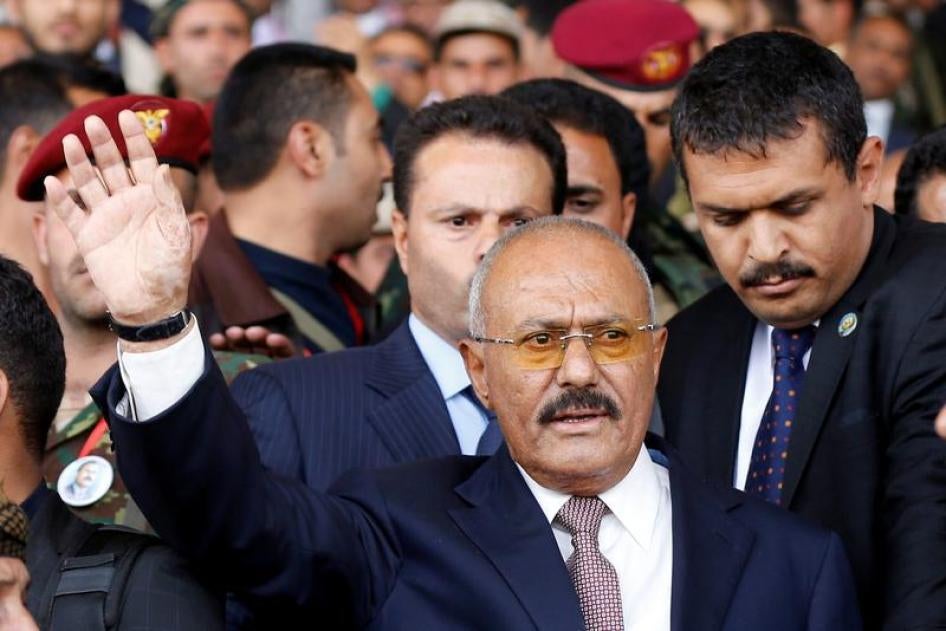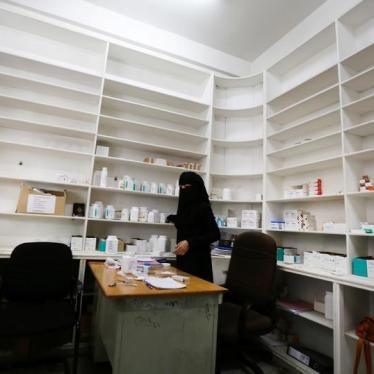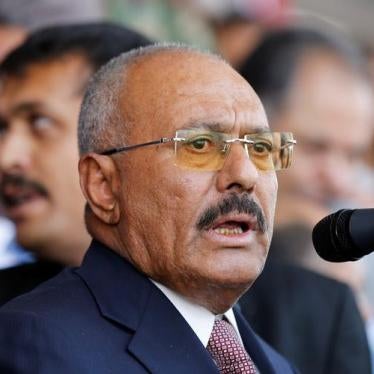It was, according to media reports, a violent ending to a violent rule, the ultimate betrayal of a master of betrayal. Monday’s killing of former president Ali Abdullah Saleh of Yemen, claimed by his foes-turned-friends-turned-foes the Houthi rebels, could have been taken from his own playbook.
The ending was unjust, and not only because the 75-year-old Saleh may have been summarily executed: his death deprived his countless victims the opportunity to see him face justice.
During 33 years in office, Saleh was implicated in numerous human rights violations. These included deadly government security force attacks on largely peaceful protesters, apparent indiscriminate shelling on densely populated areas during Yemen’s 2011-12 Arab Uprising, and possible war crimes during his civil wars against the Houthis from 2004 to 2010. Starting in 2007, Saleh’s forces also used excessive, deadly force to quash a separatist movement in the south.
But Saleh never spent a day behind bars. He was forced out of the presidency in 2012 under an exit deal brokered by the Gulf Cooperation Council, largely with international backing, that gave him and his aides blanket immunity from prosecution.
The deal let Saleh remain in Yemen, where he spent his final years sowing chaos. Houthi-Saleh forces killed and wounded civilians with indiscriminate shelling and landmines. Scores of people were forcibly disappeared, and aid distribution was often blocked in areas under their control.
Numerous, indiscriminate bombings since March 2015 by a Saudi Arabia-led coalition seeking to rout the Houthi-Saleh forces intensified the horrors against civilians. So has the coalition’s blockade of Yemen, a country with the worst cholera epidemic of modern times and more than eight million people on the cusp of famine.
In a cruel irony, Saleh’s offer on Saturday to “turn a new page” with the Saudi-led coalition if it ended the attacks and blockade reportedly prompted his killing.
Saleh’s death should open a new era in which the United Nations Security Council, Gulf States, the United States, and EU countries that brokered his exit deal to begin positive engagement on Yemen. They should start by pressing the parties to the conflict to fully cooperate with a new UN expert group that will investigate abuses by all sides. Though it’s too late to prosecute Saleh, it’s not too late to hold others responsible to account.










